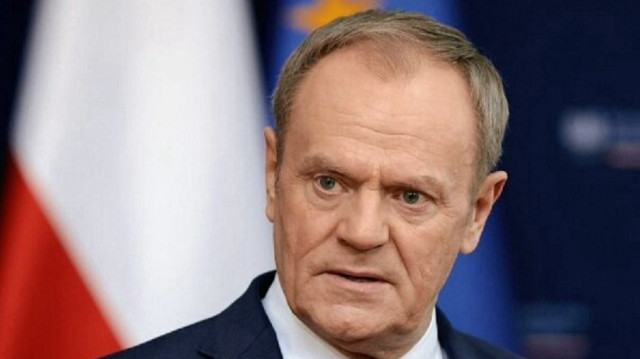
Donald Tusk introduces restructured, leaner Cabinet, which includes formation of 2 'mega-ministries' and key personnel changes after weeks of internal discord and declining approval ratings
Polish Prime Minister Donald Tusk announced a Cabinet reshuffle on Wednesday aimed at restoring stability and authority within his coalition government after weeks of internal discord and declining approval ratings.
Speaking at a press conference in Warsaw, Tusk introduced a restructured and leaner Cabinet, which includes the formation of two “mega-ministries” and key personnel changes, as part of an effort to boost the effectiveness of the ruling coalition, the Polish broadcaster TVP World reported.
“Our goal is to demonstrate that this government is still capable of delivering,” Tusk said.
Under the new structure, the Energy Ministry will combine responsibilities previously spread across the environment, industry, and climate portfolios.
Milosz Motyka from the Polish People’s Party (PSL) will head the ministry.
Meanwhile, the newly formed Ministry of Finance and Economy will consolidate the finance, development, and technology portfolios. Andrzej Domanski, who previously served as finance minister, will lead the new body.
Foreign Minister Radoslaw Sikorski was also appointed as deputy prime minister while retaining his current post.
Tusk said the move aims to improve Poland's international standing as well as its internal cohesion.
At the Justice Ministry, Judge Waldemar Zurek replaced Adam Bodnar.
Zurek, a well-known critic of judicial reforms implemented by the former Law and Justice (PiS) government, is expected to lead the next phase of the government’s effort to overhaul the judiciary.
Other changes include Marcin Kierwinski returning as interior minister, replacing Tomasz Siemoniak, who becomes the coordinator of special services.
Waldemar Balczun will take over the State Assets Ministry with a mandate to depoliticize state-owned companies.
The reshuffle comes amid growing concerns over the cohesion of the governing coalition and increasing public dissatisfaction.
Tusk’s administration has faced criticism for the slow pace of key reforms, particularly in the justice sector.







